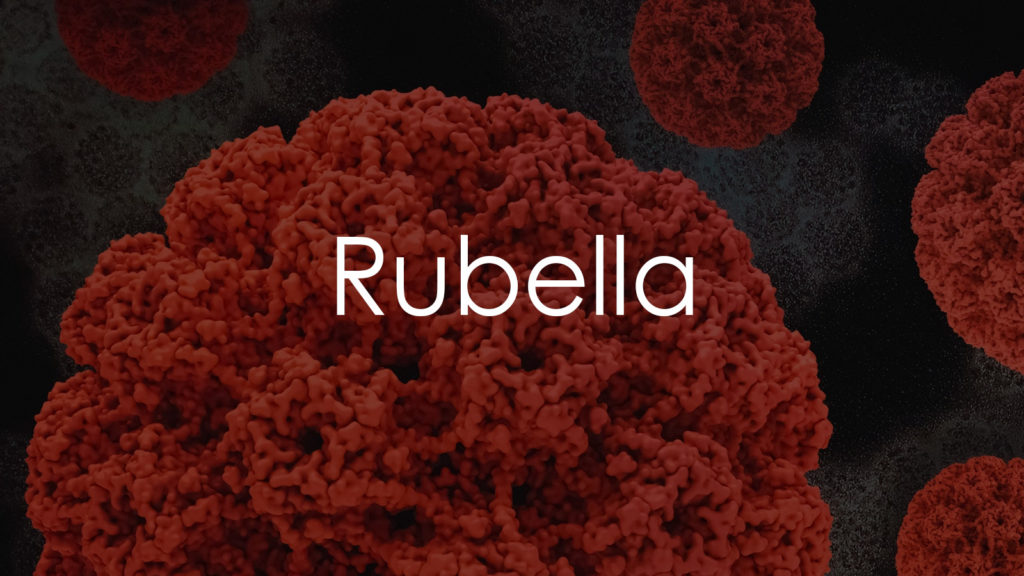Complications of rubella can be severe and life-threatening, especially in certain populations such as pregnant women, infants, and immunocompromised individuals. Understanding these complications is crucial for early detection, prevention, and effective management.

Congenital Rubella Syndrome (CRS)
Maternal-Fetal Transmission
Risk During Pregnancy
Rubella is particularly dangerous during pregnancy. If a woman contracts rubella, especially during the first trimester, the virus can cross the placenta and infect the developing fetus.
Impact on the Fetus
Congenital Rubella Syndrome (CRS) can lead to a range of severe birth defects, including heart abnormalities, developmental delays, hearing and vision impairments, and other congenital abnormalities.
Birth Defects
Cardiac Abnormalities
CRS can cause serious heart defects such as patent ductus arteriosus and pulmonary artery stenosis. These conditions can be life-threatening and may require surgery or long-term medical management.
Developmental Delays
Children born with CRS often experience developmental delays and intellectual disabilities. Early intervention programs can help manage these delays, but the impact can be long-lasting.
Hearing and Vision Impairments
CRS frequently causes sensorineural hearing loss and vision problems such as cataracts, glaucoma, and retinopathy. These impairments can significantly affect the quality of life and may require lifelong management.
Neurological Complications
Encephalitis
Inflammation of the Brain
Encephalitis, or inflammation of the brain, is a rare but severe complication of rubella. Symptoms can include high fever, severe headache, confusion, seizures, and loss of consciousness.
Treatment and Management
Immediate medical attention is required for encephalitis. Treatment includes supportive care, such as intravenous fluids and medications to reduce brain inflammation. In severe cases, intensive care may be necessary.
Meningitis
Inflammation of the Membranes
Rubella can lead to meningitis, an inflammation of the membranes covering the brain and spinal cord. Symptoms include severe headache, neck stiffness, photophobia (sensitivity to light), and vomiting.
Medical Intervention
Treatment involves hospitalization, supportive care, and sometimes antiviral medications. Early diagnosis and treatment are crucial to prevent long-term neurological damage.
Hematological Complications
Thrombocytopenia
Low Platelet Count
Thrombocytopenia, or a low platelet count, can occur as a complication of rubella. This condition increases the risk of bleeding and bruising, including nosebleeds and petechiae (small red or purple spots on the skin).
Treatment and Management
Management includes monitoring platelet levels, using medications to increase platelet production, and, in severe cases, platelet transfusions. Prompt treatment is essential to prevent severe bleeding complications.
Cardiovascular Complications
Myocarditis
Inflammation of the Heart Muscle
Myocarditis, or inflammation of the heart muscle, is a rare but serious complication of rubella. Symptoms include chest pain, shortness of breath, fatigue, and arrhythmias (irregular heartbeats).
Treatment and Management
Treatment involves hospitalization, anti-inflammatory medications, and supportive care. Severe cases may require more intensive cardiac care and long-term follow-up with a cardiologist.
Musculoskeletal Complications
Arthritis
Joint Inflammation
Arthritis, or inflammation of the joints, can occur in individuals with rubella, especially adults. Symptoms include joint pain, swelling, and stiffness, typically affecting larger joints like the knees and wrists.
Treatment and Management
Treatment includes pain relievers, anti-inflammatory medications, and physical therapy to maintain joint function and mobility. Most cases resolve within a few weeks, but some may require longer management.
Arthralgia
Joint Pain
Arthralgia, or joint pain without inflammation, is common in rubella, particularly in adults. The pain can affect various joints and may persist for several days to weeks.
Symptomatic Relief
Pain management includes over-the-counter pain relievers and rest. Maintaining physical activity as tolerated can also help manage symptoms.
Respiratory Complications
Pneumonia
Lung Infection
Pneumonia, or lung infection, can develop as a complication of rubella, particularly in immunocompromised individuals and young children. Symptoms include severe cough, difficulty breathing, chest pain, and high fever.
Treatment and Management
Treatment involves antibiotics for bacterial pneumonia, supportive care, and close monitoring. Severe cases may require hospitalization and oxygen therapy.
Bronchitis
Inflammation of the Bronchial Tubes
Bronchitis, an inflammation of the bronchial tubes, can occur as a complication of rubella. Symptoms include persistent cough, mucus production, and chest discomfort.
Treatment and Management
Management includes rest, hydration, and symptomatic relief through medications that ease coughing and discomfort. Severe cases may require medical supervision and additional treatments.
Ophthalmic Complications
Conjunctivitis
Red, Watery Eyes
Conjunctivitis, or inflammation of the conjunctiva, is common in rubella. It causes red, watery eyes that may be sensitive to light.
Treatment and Management
Management includes keeping the eyes clean, avoiding irritants, and using medications to reduce inflammation and prevent secondary infections. Severe cases may require specialized eye care.
Cataracts
Clouding of the Eye Lens
Congenital rubella can cause cataracts, which is the clouding of the eye lens. This can significantly impair vision and may require surgical intervention to correct.
Monitoring and Surgery
Regular eye examinations and monitoring are essential for managing cataracts. In severe cases, surgery may be necessary to restore vision.
Gastrointestinal Complications
Diarrhea
Frequency and Severity
Diarrhea can occur as a complication of rubella, particularly in young children. It varies in frequency and severity and can lead to dehydration and malnutrition.
Treatment and Management
Treatment includes maintaining hydration with oral rehydration solutions, ensuring proper nutrition, and monitoring for signs of severe dehydration. Severe cases may require intravenous fluids.
Impact on Pregnancy
Miscarriage and Preterm Birth
Risk During Pregnancy
Pregnant women infected with rubella are at higher risk of miscarriage, preterm birth, and low birth weight. These complications can have significant impacts on both the mother and the baby.
Treatment and Management
Pregnant women with rubella require close medical supervision, supportive care, and preventive measures to reduce the risk of complications for both the mother and the baby.
Conclusion
Complications of rubella can be severe and affect various organs and systems in the body. Early recognition and prompt medical treatment are crucial for managing these complications effectively. Vaccination remains the most effective way to prevent rubella and its associated complications. By understanding the potential complications, individuals can take proactive steps to seek medical care and reduce the risk of severe outcomes.